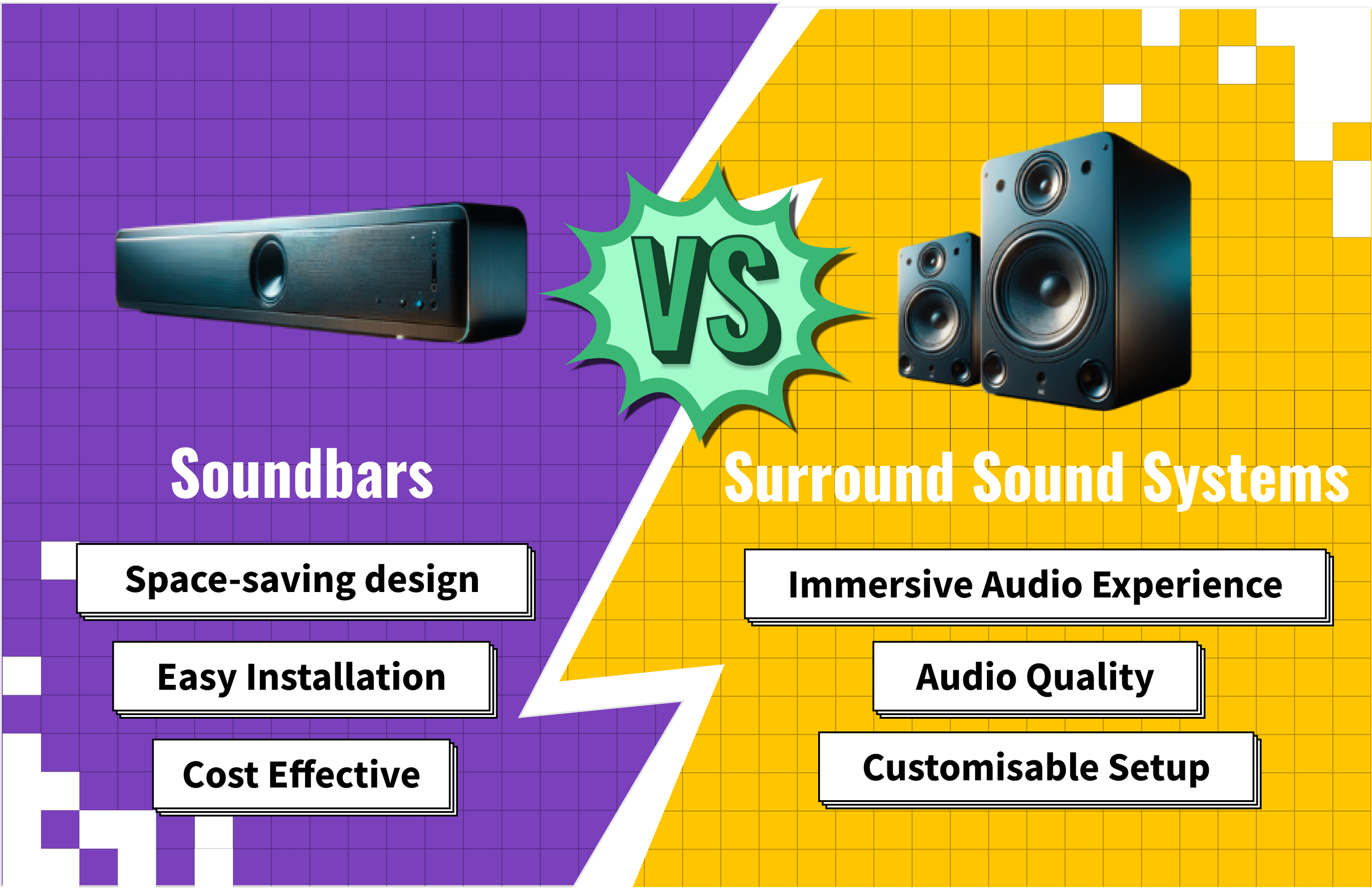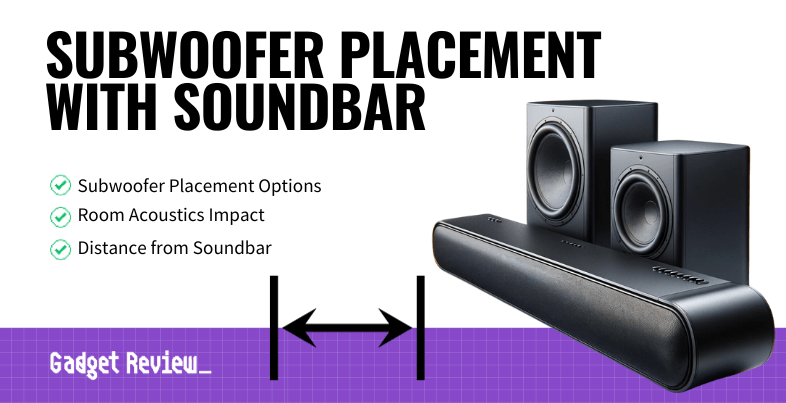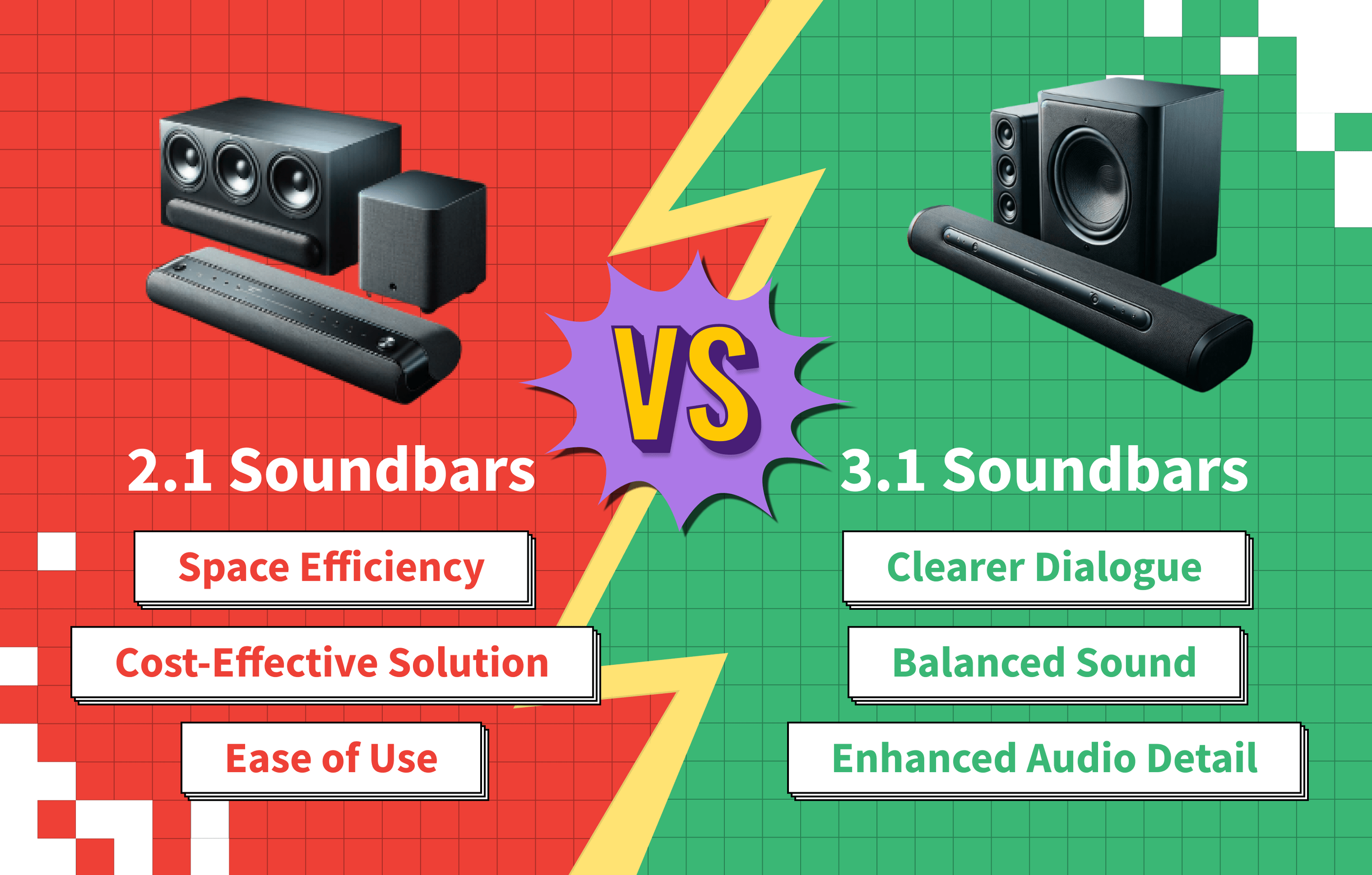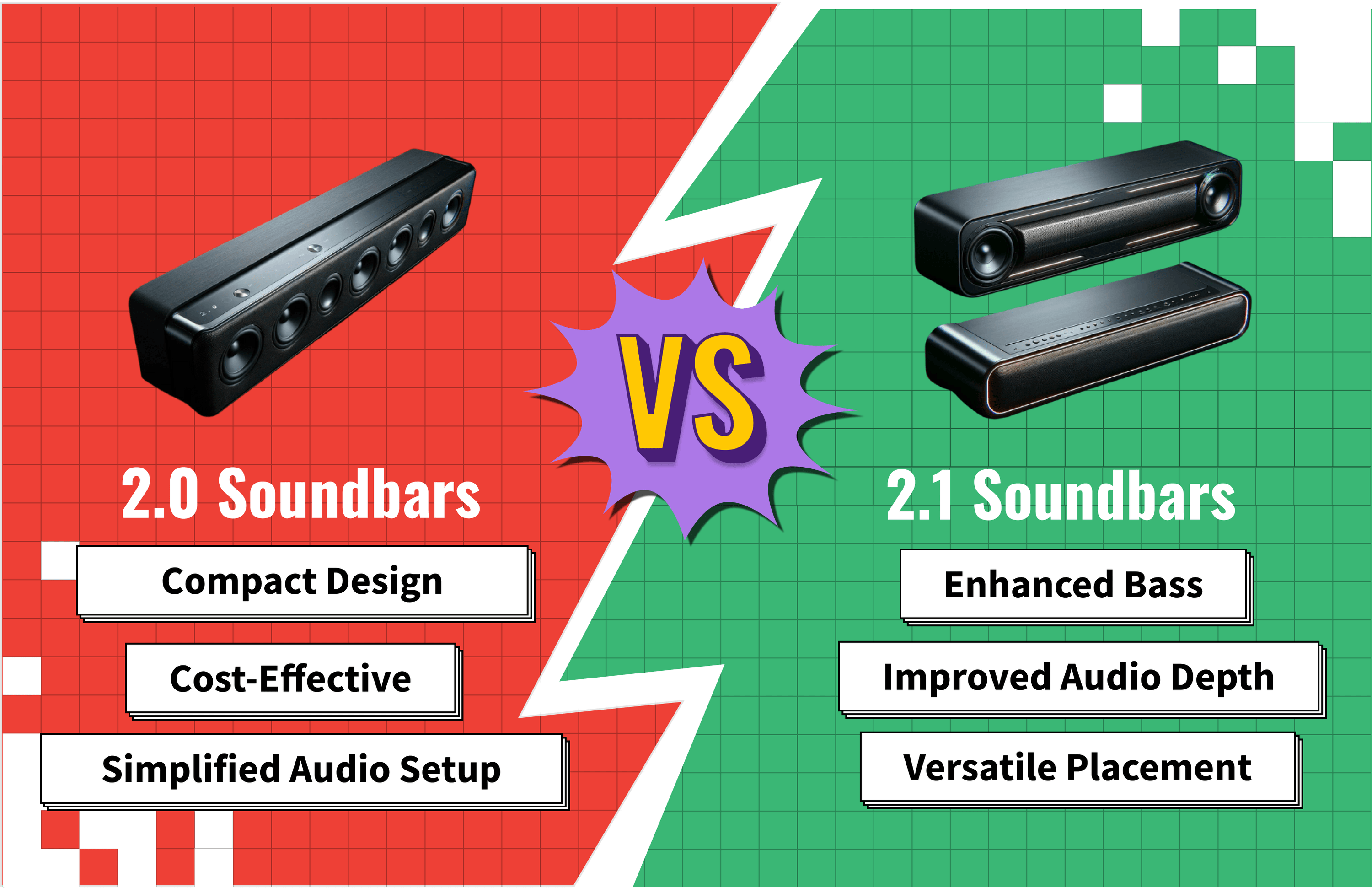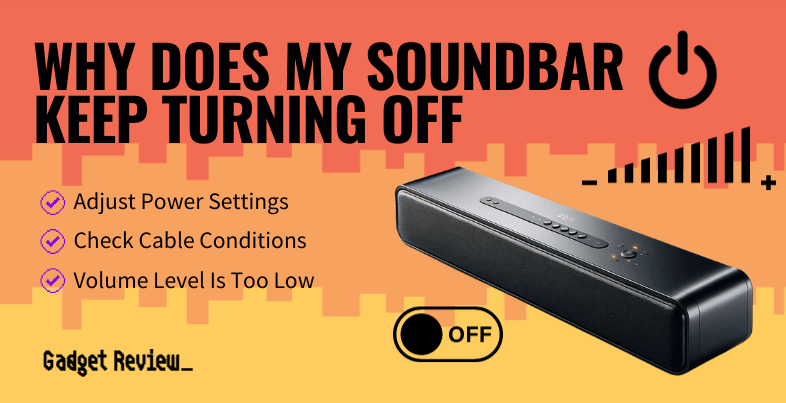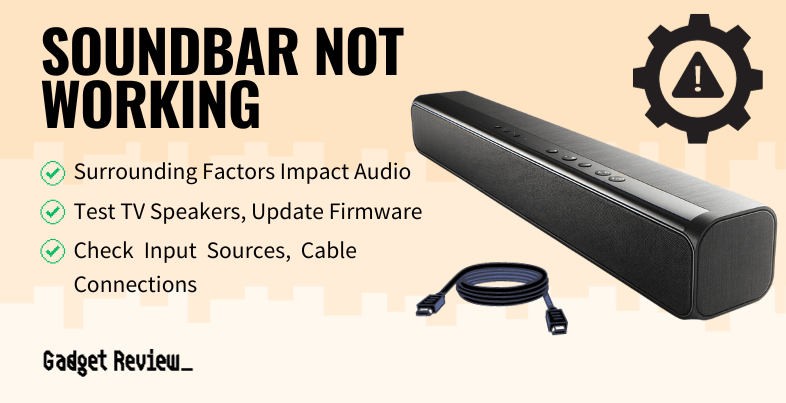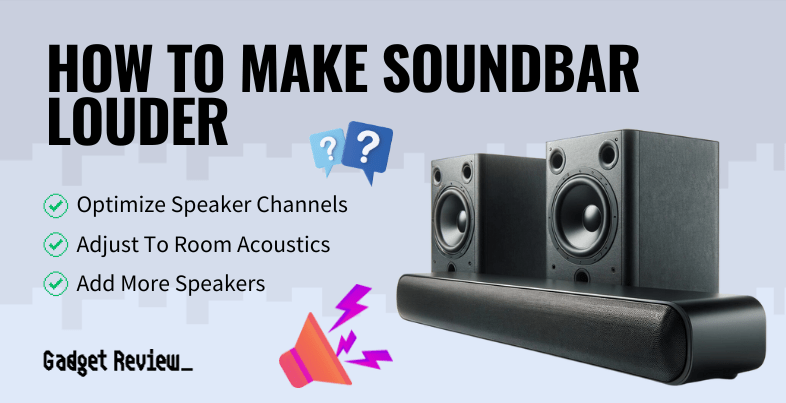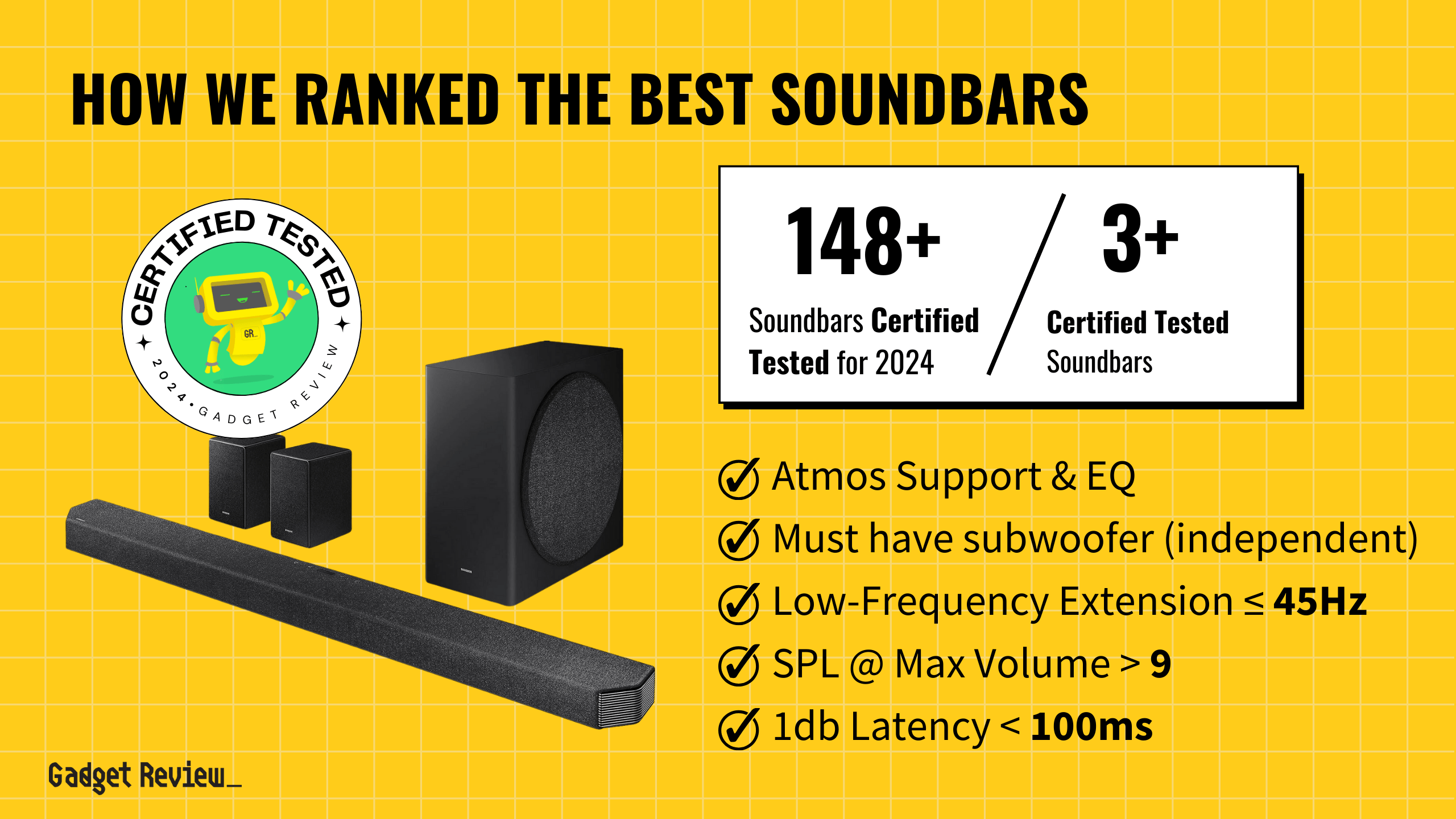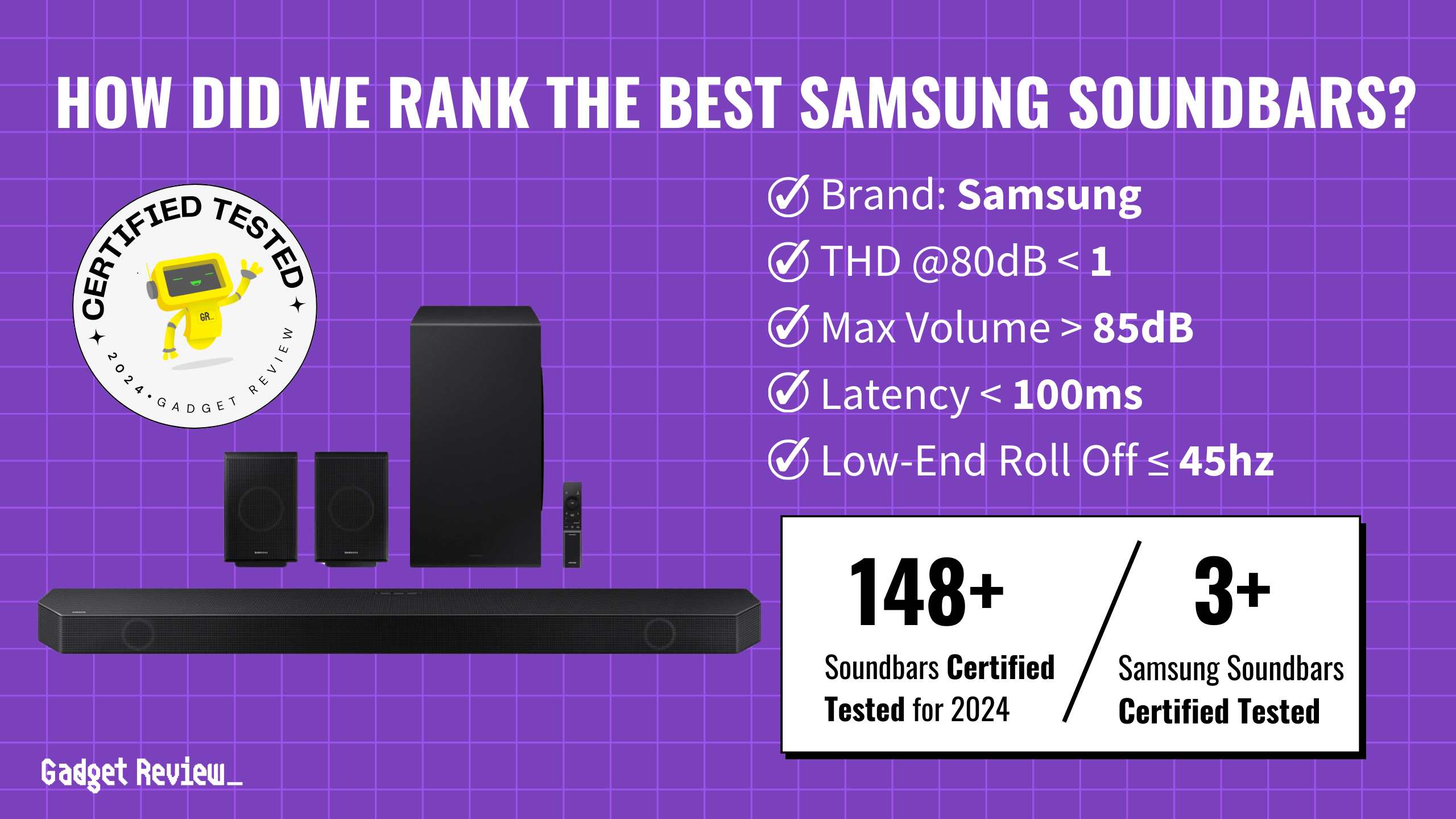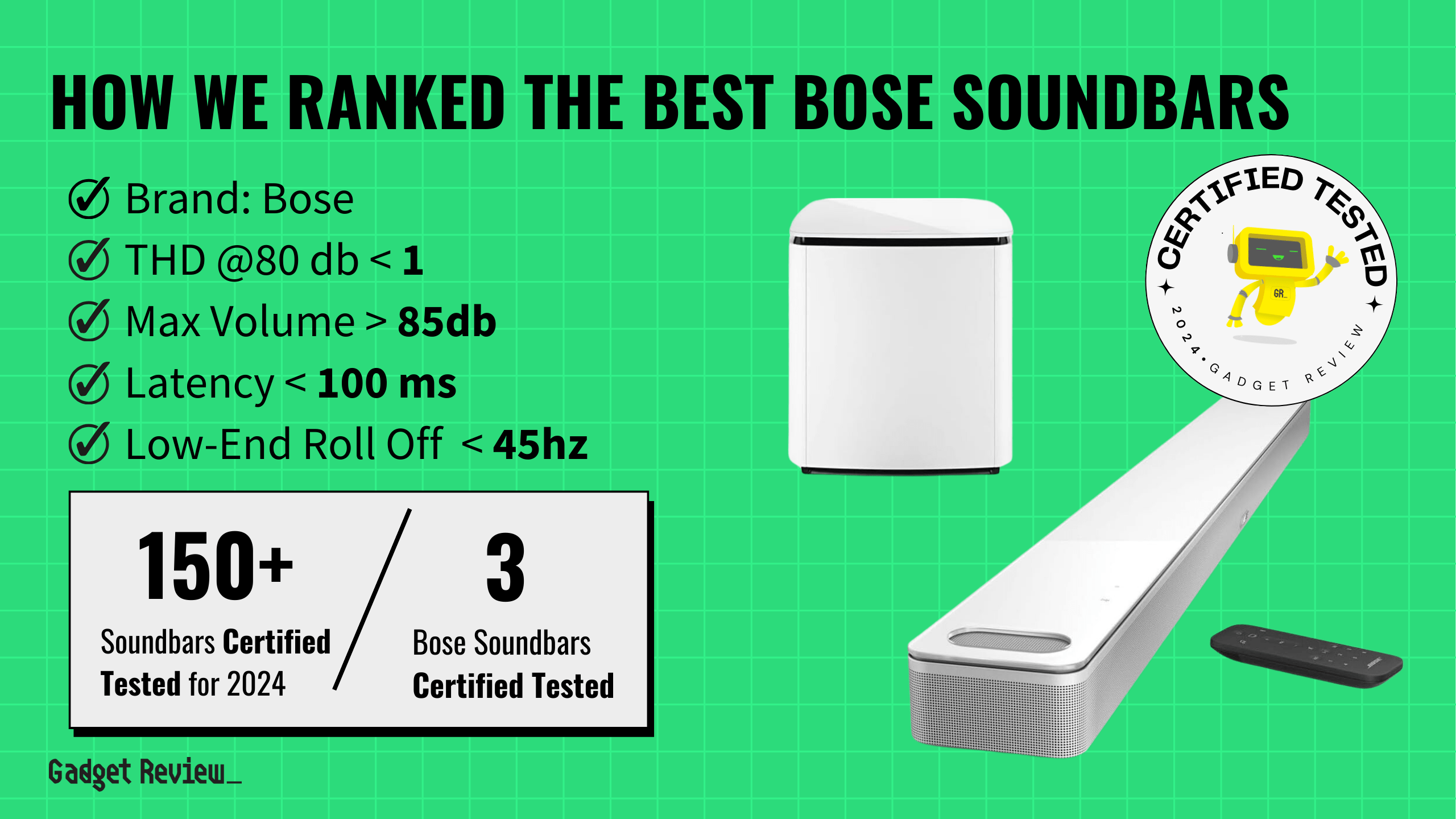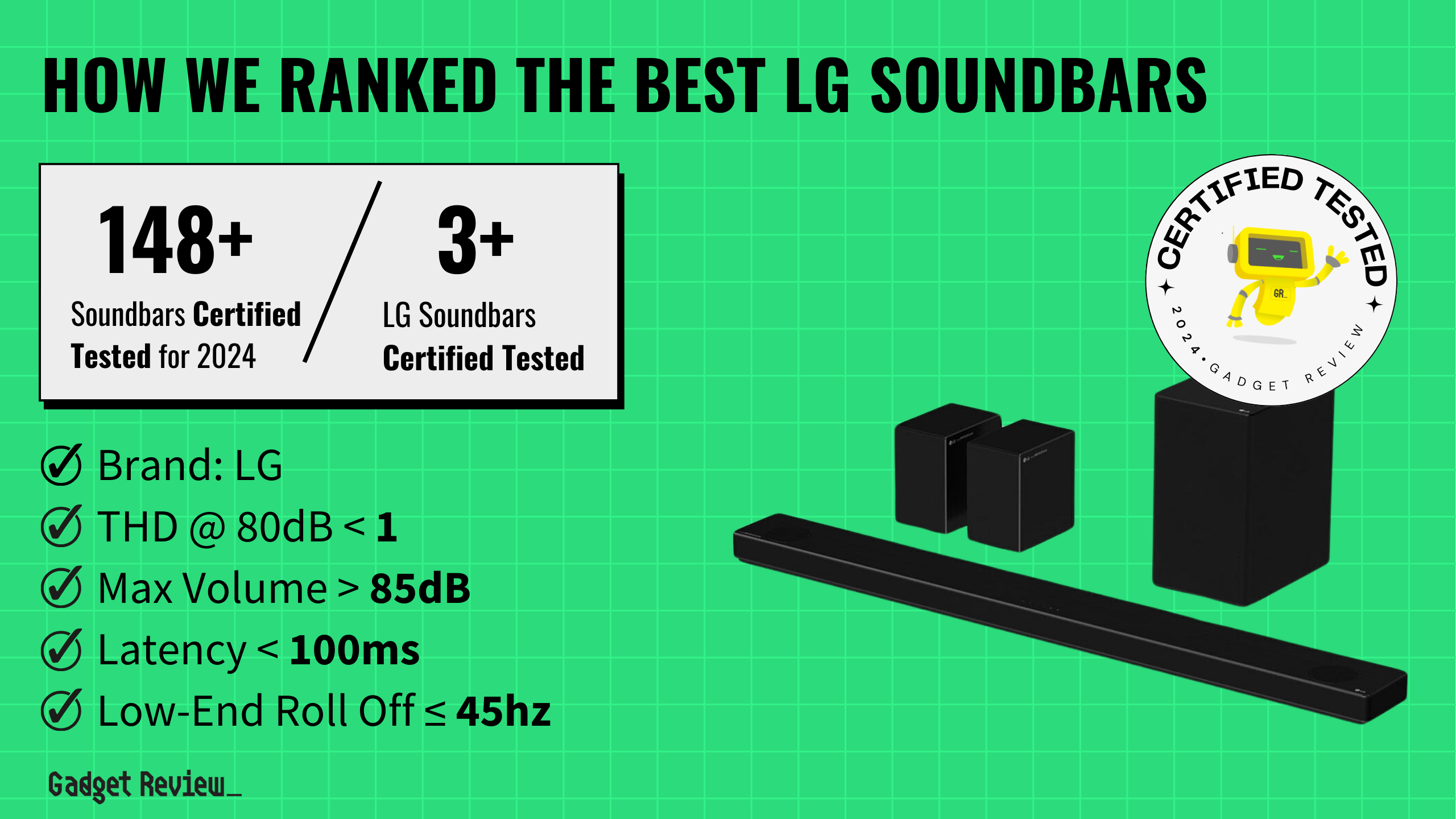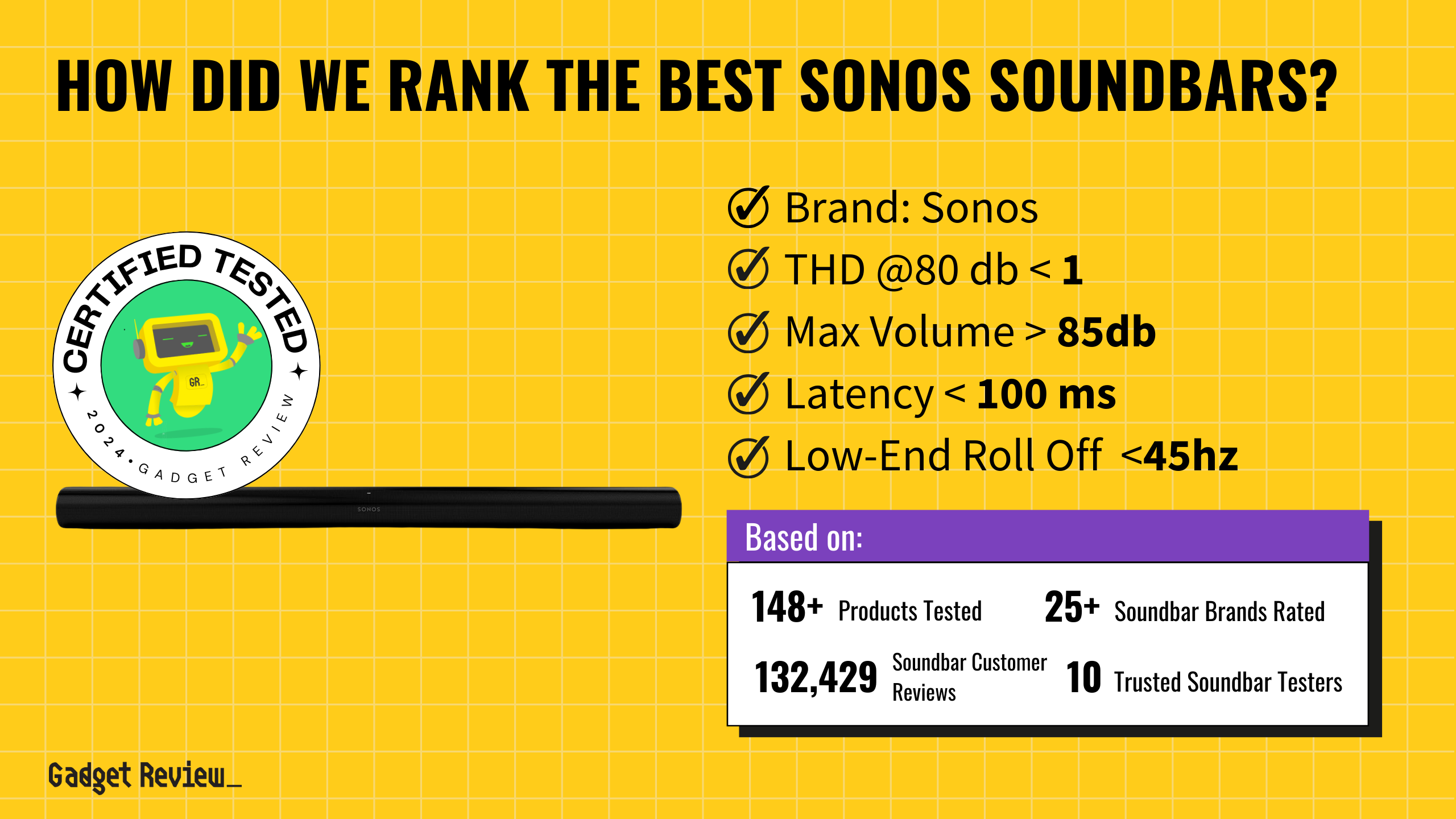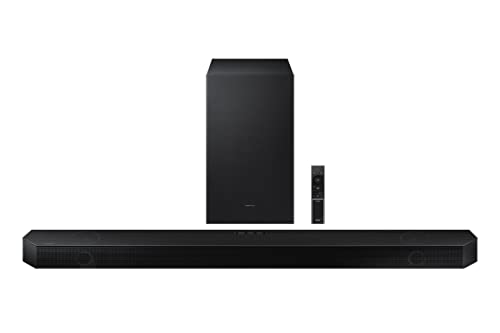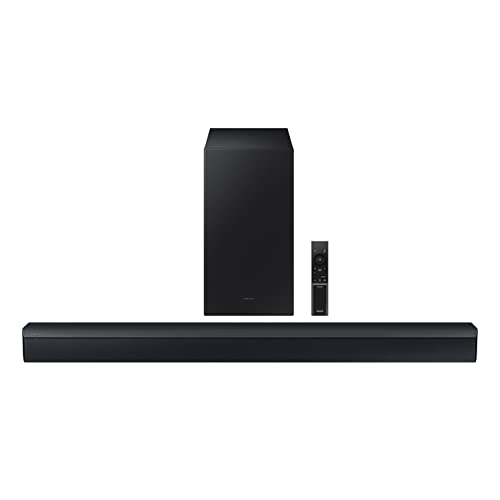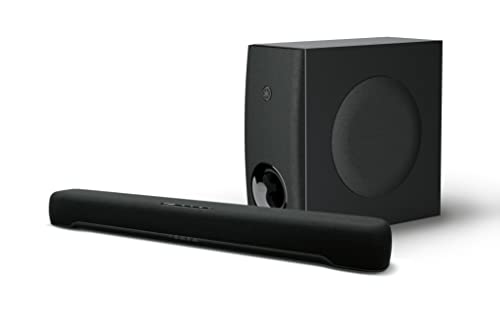Stumped about whether to get a soundbar or a surround sound system? It’s a common dilemma for many audiophiles when shopping for top-rated speakers. Let’s break down the key differences, pros, and cons, and help you figure out which one is right for your home.
Key Takeaways_
- A soundbar is a compact audio device that delivers powerful sound for movies, music, and TV.
- On the other hand, a surround sound system uses multiple physical speakers to deliver immersive audio for a home theater or TV setup.
- Soundbars are more affordable and smaller than surround systems, but they do not provide the same immersion or audio quality as a surround sound system.
Differences between Soundbars and Surround Sound Systems
Soundbars and surround sound systems share several differences.
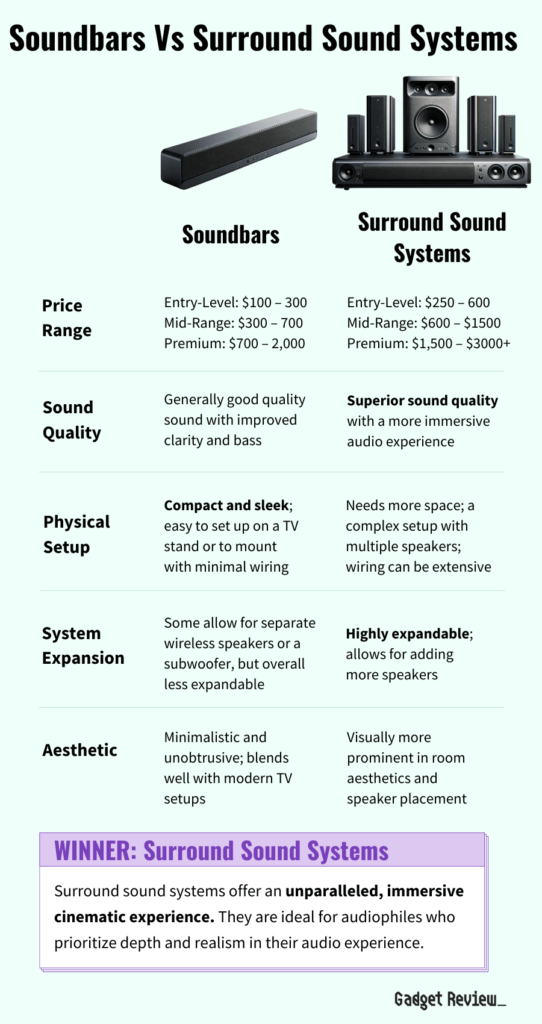
Soundbars
- Soundbars are known for their compact layout.
- Due to their sleek design, a soundbar can be placed under your television or mounted on a wall without taking up much space. It’s a great option for those who live in apartments or have small living rooms.
- The compact design limits the range of its sound output. It’s essentially just a single unit with all speakers built into one case.
- They are also known for being simpler to install and cheaper compared to surround sound systems.
- Most soundbars I’ve come across involve a plug-and-play design, meaning that setting them up is usually straightforward and hassle-free.
- Some are wireless as well (Bluetooth or Wi-Fi connection) for added convenience.
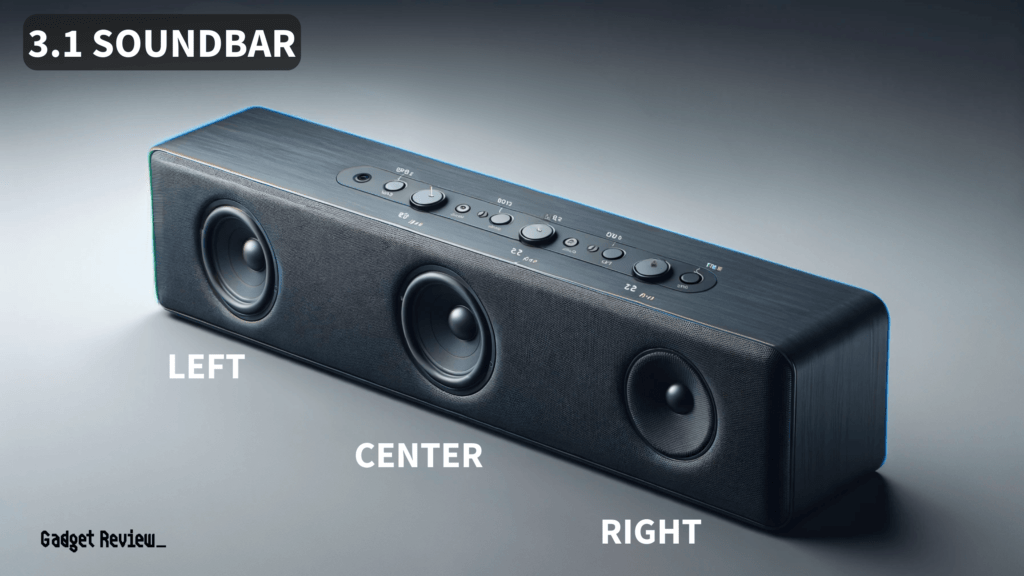
- Most soundbars boost three channels (left, center, right) creating a pseudo-surround effect that will improve the sound of your TV dramatically.
- Some high-end soundbars also have subwoofers and additional speakers to disperse the sound more across a room.
- They lack the depth, immersion, and width of audio a surround sound system can achieve. Regardless of the quality or brand, a soundbar will always be a two-dimensional audio device that lacks depth and width. But they won’t break the bank as much.
- Soundbars often lack the ability to customize the sound experience.
- Unlike surround sound systems that allow you to adjust individual speaker channels, with most soundbars, you’re stuck with the factory settings. This might be a disadvantage for audiophiles who prefer a tailored listening experience.
Surround Sound Systems
- The main attraction of surround systems is, without a doubt, their powerful, immersive audio experience.
- The layout involves multiple distinct speakers, placed strategically around the room, that deliver highly localized audio effects.
- The setup consists of a left, right, and center channel speaker, two rear speakers for a surrounding effect, and an optional subwoofer for bass. You may deal with a lot of cables in order to connect your surround speakers to the receiver.
- The result of a high-quality surround sound system is the recreation of a movie or a concert-like setting in your house. You’ll feel like you’re in the middle of the action.
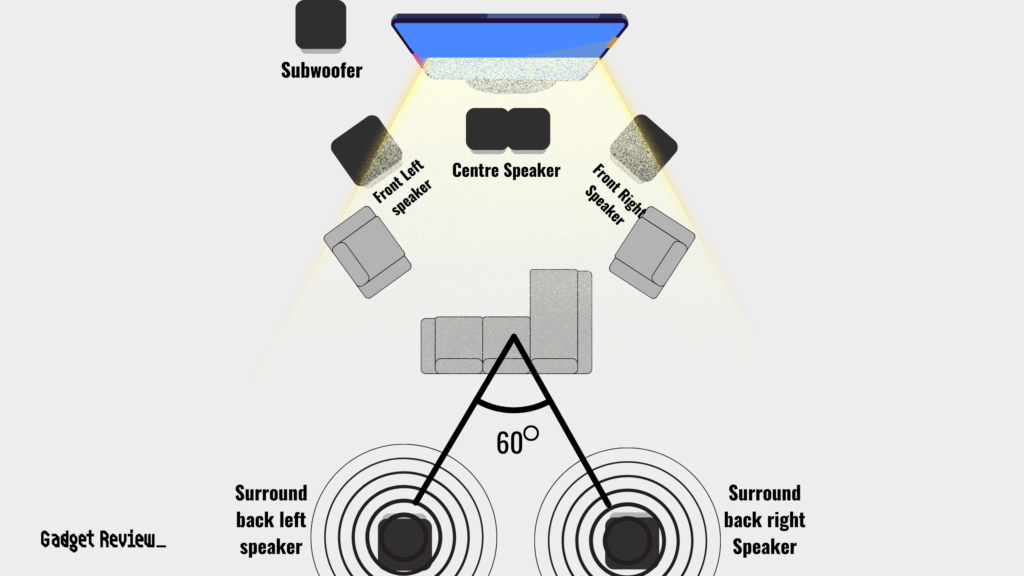
- They require a more intricate setup and can be heavily customized to personal preferences.
- You’re free to arrange your speakers in any way you see fit and to adjust the volume of each one individually.
- With control over audio configuration, surround setups offer an unparalleled sound experience.
- However, they require more space and may take a fair chunk out of your budget versus the cost-effectiveness of soundbars.
- The installation is more complex, since they’re not a plug-and-play situation like soundbars. A fair amount of effort is required to calibrate and position the speakers for an optimal sound experience.
- It’s an investment of time and potentially a source of frustration for those not very tech-savvy.
- The higher cost is also a big factor to consider. The prices of these systems can range quite dramatically, with high-end systems costing significantly more than soundbars. Plus, you may need to account for additional cables, stands, or wall-mounts, leading to further expense.
How to Decide: Soundbar or Surround Sound?
- A soundbar is best for people who want a compact, simple, and affordable way to upgrade their TV audio. Minimalists may prefer this option.
- The ideal soundbar user wants significantly improved TV audio yet doesn’t mind missing out on a truly immersive audio experience.
- If you’re in a small or cluttered space, a soundbar will likely fare better. Small soundbars are designed to deliver decent audio quality in such environments without the need for a multiple-speaker setup. They are compact, clutter-free, and do not require a maze of wires.
- Soundbars are generally more affordable, offering a decent audio experience that would significantly improve your TV’s built-in speakers.
warning
Mute your television’s built-in speakers to avoid diminishing your surround sound experience and audio quality.
- A surround sound system is best suited for audiophiles that have the budget and space for one.
- If you’re a movie buff who craves a true theater-like experience with high-quality sound at home, then consider this multi-speaker setup.
- The layout of your room plays a significant role in the audio experience. It affects how sound bounces around the room. A room with plenty of open space is perfect for a surround sound system. This allows the sound waves to travel freely, providing an immersive experience. You’ll be able to place speakers at various points to create a full, immersive audio experience.
- Can you afford it? Surround sound systems tend to be more expensive due their complexity and the number of components involved. They offer the ultimate audio experience but at a higher cost.
Conclusion
After weighing up the pros and cons of soundbars and surround sound systems, keep in mind that the best choice depends on your personal needs and circumstances. Remember, the layout of your room and your personal preferences hold significant sway in your choice. Whether you opt for a soundbar or a surround sound system, there’s no doubt you’ll enhance your audio experience. Happy listening!

